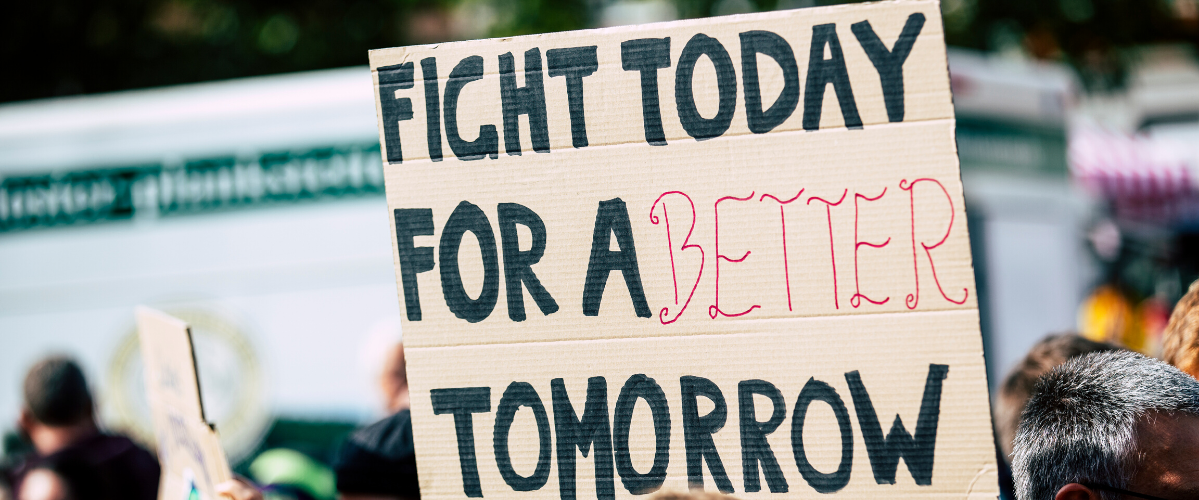The world has reached a boiling point: the COVID-19 pandemic, protests against systemic racism, and a worsening overdose crisis. Together, these present a crisis for public health and demand for a solution: social justice.
Social justice is a philosophy that everyone deserves equal rights and opportunities. Along with equity, social justice is a fundamental prerequisite for health, and a key component of health promotion. We can’t achieve good public health outcomes without taking action to ensure all members of our community have access to an equitable lived experience. This means that public health must have a social justice lens.
Health disparities are created by inequities. The social determinants of health (SDOH), such as racism, Indigeneity, income, gender discrimination, and other factors, create conditions and inequitable circumstances which disproportionately impact Black, Indigenous, and People of Colour (BIPOC) populations, LGBTQ2S folx, people living in poverty, people who use drugs, and many more.
What’s reflected in the world right now is a reckoning with these injustices.
Race
Racism is an idea created by humans that creates a hierarchy of value based on Whiteness. Anti-Black racism has been brought to the forefront by the persistent murders of Black men and women, and the history of Black lives being undervalued is extensive. This history, along with policies, institutions, legal norms, among other factors, creates deeply rooted structural racism. Indigenous peoples in Canada disproportionately experience poverty, homelessness, lack of access to rights, and have poorer health outcomes. We still have the Indian Act—a federal law created in 1876 and largely unchanged that perpetuates paternalism, colonialism, and racism—another example of structural racism.
“Indigenous and racialized peoples generally experience higher rates of poverty, precarious and under employment, discrimination and systemic disadvantages within housing, education, and public health systems. Directly and indirectly, racism harms health and causes premature death.”
National Collaborating Centre for Determinants of Health, “Let’s Talk Racism and Health Equity”
In Canada, some say we don’t have the same issues as in the US. We do. While we have developed into a country that values immigration and multiculturalism, the effects of colonization persist. Even before the pandemic, the impacts of colonization and racism were impacting the health of our populations.
With COVID-19, those have only been further exacerbated. The pandemic is more adversely affecting people with lower incomes, and across North America, COVID-19 has disproportionately affected the most racially diverse neighbourhoods.
By not collecting racial data for COVID-19 patients, Canada is ignoring the relationship between race and health, and how structural and systemic discrimination impacts access to care, making it difficult to respond and to assess health status across populations. In countries where data is collected, evidence shows that Black, Asian, and Minority Ethnic (BAME) groups are more likely to die from COVID-19 than the general population. Across the healthcare system there is an unequal pattern of care based on race. In order to support health equity and a socially just healthcare system, we have to collect and examine this data.
Whether it’s at a systemic level, discrimination associated with race and epidemics, or through interpersonal attacks and direct violence, racism is impacting the health of our communities.
The overdose crisis
We’ve talked about the intersection between two public health emergencies that are leading to a significant increase in overdose deaths. In May 2020, 170 people died from overdose; the highest in BC’s history. Why? An increasingly toxic drug supply and stigma that leads people to use alone. Underlying this is social injustice. Harmful laws and bad drug policies target people who use drugs and keep them in a cycle of criminalization, poverty, and discrimination. Especially now, when the overdose crisis is worsening in BC, we need to advocate for equity and social justice.
LGBTQ2S Rights
June is Pride Month because in June 1969, a three-day uprising (the Stonewall Riots) in New York City launched the gay rights movement. Yet LGBTQ2S people still experience discrimination and poorer health outcomes. Conversion therapy, or sexual orientation and gender identity and expression change efforts (SOGIECE), is still happening. We’re moving the dial forward bit by bit (the Canadian government is only now moving forward to ban conversion therapy practices in the criminal code), but the negative health consequences for people who have experienced this remain largely unaddressed. The views that heteronormativity and binary gender are the norm, harmfully, remain pervasive in our world.
When we speak we are afraid our words will not be heard or welcomed. But when we are silent, we are still afraid. So it is better to speak.
Audre Lorde
These are just a few examples of how social justice and public health must be aligned to protect our communities. There are multiple forces that intersect and shape inequities; the SDOH do not occur in a vacuum. We must consider the complexities of interacting conditions in order to change systems, structures, and policies, and create a truly just world.
What we see in the world around us right now does not reflect a socially just view. We need to change the reflection. Read part two of this post, Social Justice and Public Health: Taking Action for eight ways you can improve public health and social justice in your life.
